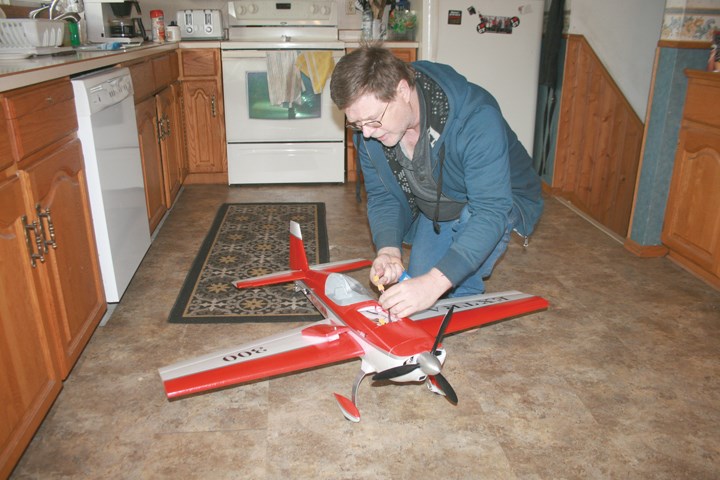A new club is forming in the city to promote radio controlled flying.
While there has been a club and airfield south of Yorkton for years, it has tended to focus on gas-powered airplanes.
The new Parkland R/C Club will look to build from the grassroots, with its attention on electric (battery) powered airplanes, explained Garry McGillivary, the man trying to get the new group off-the-ground.
“There are a number of fliers already around,” said McGillivary, adding locally the roots of the hobby go back probably 40 or 50 years.
“Back in the 1970s the Canadian National R/C was held in Yorkton. It was a pretty big event. Fliers came from all over Canada and even some were up from the [United] States to compete.”
The new club will look to create a foundation to sort of rebuild the hobby here, offered McGillivary.
The idea of working with airplanes using batteries is twofold. To begin with battery-operated airplanes are lower cost, that means affordable as an entry level flier, said McGillivary.
“The last four or five years [electric R/C] has really come into its own,” he said.
But battery technology is now so advanced they can offer experienced fliers lots of fun too.
Then there is the second factor which McGillivary said he sees as an asset. Electric planes are lighter, quieter and generally slower in the air. That combination means the new group has reached an agreement with the City of Yorkton to fly on property just south of Yorkdale Central School.
“We found a place close to town to basically show [the hobby] to the public,” he said, adding area residents need not fear as the planes must stay below 500-feet, and in line of sight to the operator.
By raising awareness of the hobby with flying at the new location, McGillivary said he hopes new people will take an interest. He noted in some communities R/C planes are actually built as an in-school project.
“All the principles on a model airplane are the same as a real one,” he said, adding it’s not unusual to find pilots who were R/C fliers in their younger years.
“And most astronauts flew R/C airplanes in their day.”
The airplanes that will fit in the new club are made of balsa wood, fabric, or increasingly Styrofoam. The latter allows for a number of electric fliers to come as very easily assembled kits.
Kits can cost a couple of hundred, or less to get started.
“Some people stay flying electrics,” said McGillivary, adding that for others it is “a stepping stone” to learn the hobby before going to a gas-powered airplane.
McGillivary said he knows there are a base of electric fliers to draw to the club already.
“I know a lot of guys run out in the country and fly off grid roads,” he said, adding he hopes the new club will give them a place to gather with like-minded hobbyists.
And newcomers are welcome, added McGillivary, who has been an R/C instructor for years. Anyone interested may call him at 306-782-0041.




